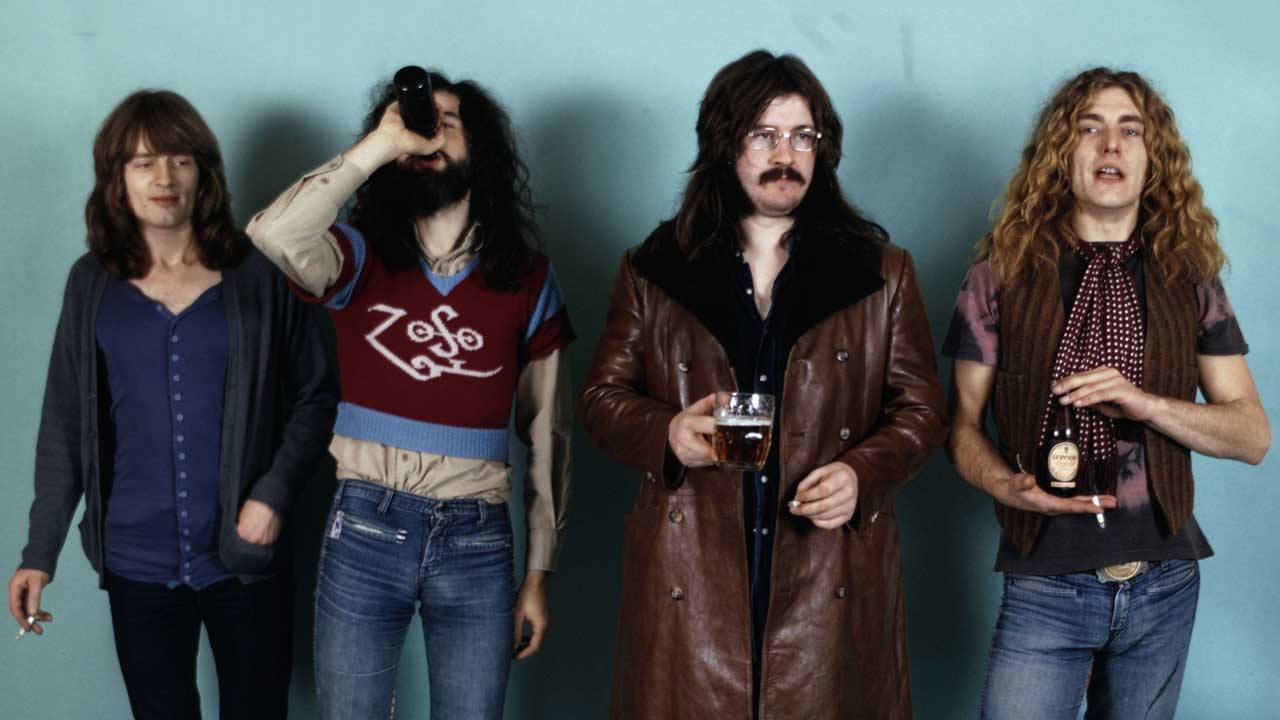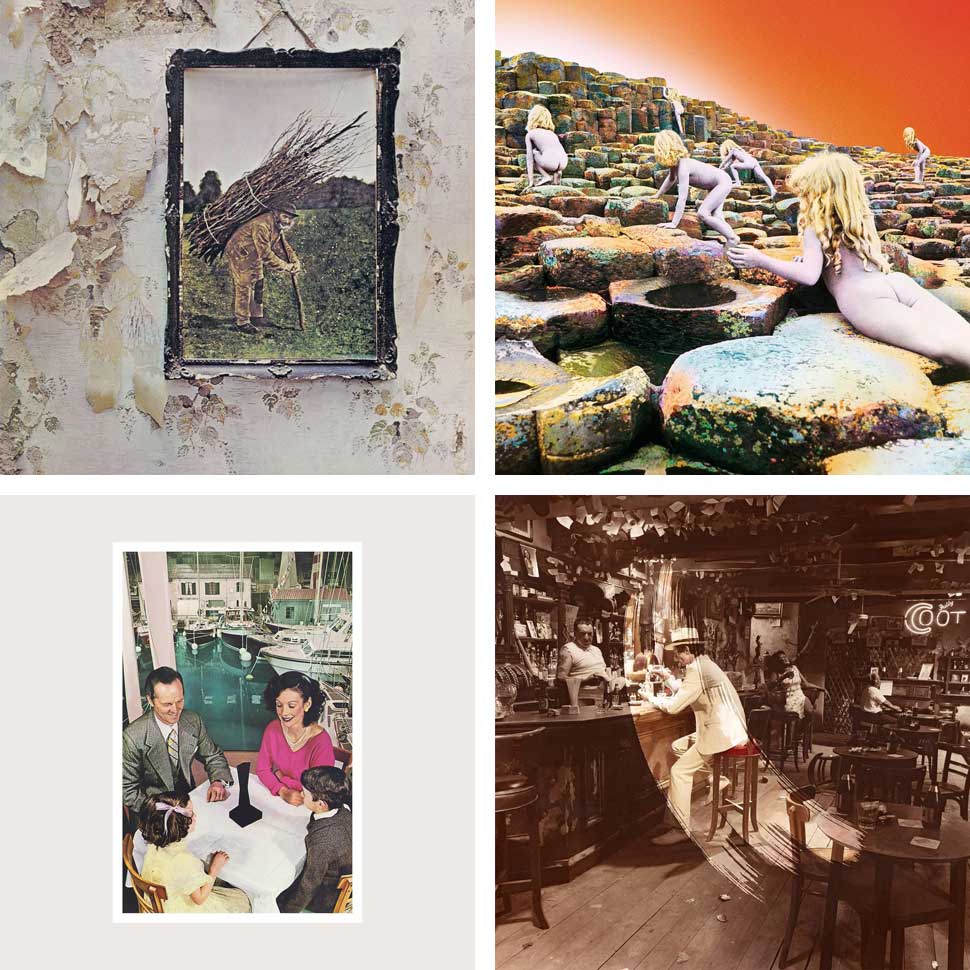"Led Zeppelin left behind a body of music that defined the term 'progressive rock', but in the truest sense of the word": The case for Led Zeppelin, uncrowned kings of prog rock
A blues band? A hard rock band? Think again

Anyone who frequented record shops in the 1970s will recall the term ‘File Under Progressive’, an instruction found on the sleeves of LPs by those groups that rarely, if ever, turned up on Top Of The Pops. Foremost among these rarified bands was Led Zeppelin, a group that never appeared on TV, released singles or even bothered to include their name on most of their LP covers.
These days ‘progressive rock’ is a term applied to Zeppelin’s musically ambitious contemporaries – the likes of Emerson, Lake & Palmer, Genesis or Yes – and modern acts inspired by those 70s bands. In truth, Led Zeppelin were more ‘progressive’ than any of them.
In 1967, The Beatles’ Sgt Pepper’s Lonely Hearts Club Band LP stuck a marker in the sand. From here on, many groups began thinking beyond the confines of the three-minute pop single. Among these were future Zeppelin guitarist Jimmy Page’s band The Yardbirds, whose epic track Dazed And Confused featured Page conjuring unearthly sounds by scraping a violin bow across the strings of his guitar. ‘Pop’ had acquired a hairier, smellier older brother called ‘rock’, and all bets were off.
A new version of Dazed And Confused became the centerpiece of Led Zeppelin’s 1969 debut album. Although Zeppelin’s music was always rooted in the blues, the band, especially Page and bassist/keyboard player John Paul Jones, would spend the next 10 years and seven albums pushing the boundaries.
Like Pink Floyd, most Zeppelin LPs came in sleeves that didn’t include the album’s title or even the band’s name. Instead of sticking their own picture on the cover, Zeppelin preferred to use mysterious imagery created by Pink Floyd’s friends, the design team Hipgnosis.
To thumb through the Zeppelin rack in your local branch of Harlequin Records in the 70s was to be transported to another world, populated by naked children climbing over the Devil’s Causeway (Houses Of The Holy) and a 1950s family pondering some strange unidentified object (Presence). These images, like the ones adorning Yes’s Fragile or Genesis’s The Lamb Lies Down On Broadway, invited the question: what does it all mean?

Trying to work it out was all part of the fun. Unlike Yes or Genesis, though, Led Zeppelin didn’t fill entire sides of their LPs with one composition, like a rock band trying to produce a classical symphony. Instead the likes of Kashmir, The Song Remains The Same and Stairway To Heaven were mini-symphonies that distilled a mindboggling array of ideas into songs that rarely tipped the ten-minute mark.
Sign up below to get the latest from Prog, plus exclusive special offers, direct to your inbox!
What Zeppelin shared with those prog bands, though, was a fantasy element to their music and lyrics. Vocalist Robert Plant dipped into his well-thumbed copy of The Lord Of The Rings for inspiration (see: Ramble On and Misty Mountain Hop) and wrote unfathomable poetry such as ‘I saw a lion he was standing alone with a tadpole in a jar’ – a line as cryptic as anything dreamed up by Yes’s Jon Anderson – for Dancing Days.
Similarly, Jimmy Page’s playing might have been anchored in the blues, but he still made his guitar sound like a one-man orchestra. Under Page’s direction, there was something cinematic about Led Zeppelin’s music. Just listen to the larger-than-life Achilles Last Stand. It’s the musical equivalent of a 70s blockbuster; The Towering Inferno perhaps, or The Poseidon Adventure.
Rockabilly, old-English folk, jazz, Indian ragas and 50s doo-wop – it was all grist to the Zeppelin mill. As the 70s wore on, John Paul Jones’ keyboards added more layers to the music. Jones never felt the need to wear a shiny cape, a la Rick Wakeman, or spin upside down while playing the piano, like Keith Emerson. But his contribution to No Quarter, Down By The Seaside and Zeppelin’s last big prog-rock blowout, the incredibly strange Carouselambra, proved that he was the greatest keyboard wizard of them all.
“We always used to think that Zeppelin was a progressive rock band until it became a slightly dirty word,” said Jones, whose comment is the closest any of Zeppelin came to aligning the group with any genre.
Zeppelin didn’t really do genres. It was all up for grabs. That said, they might have been hermetically sealed off from the rest of the musical world, but they were still a powerful influence on others, especially that mid-70s generation of North American bands, particularly Canadian power trio Rush, who spent the first five years of their career sounding like the bastard offspring of Zeppelin and Yes.
When Led Zeppelin called time following the premature death of drummer John Bonham in 1980, they left behind a body of music that defined the term ‘progressive rock’, but in the truest sense of the word. Zeppelin threw out the rulebook. They were progressive in that they made the music they wanted, when they wanted, and never stopped moving.
No two Led Zeppelin albums ever sounded the same, and every Led Zeppelin album took its listener on a journey. Like the best prog-rock, you never knew quite where you were going or how long it would take to get there, but the trip was always worthwhile.
Mark Blake is a music journalist and author. His work has appeared in The Times and The Daily Telegraph, and the magazines Q, Mojo, Classic Rock, Music Week and Prog. He is the author of Pigs Might Fly: The Inside Story of Pink Floyd, Is This the Real Life: The Untold Story of Queen, Magnifico! The A–Z Of Queen, Peter Grant, The Story Of Rock's Greatest Manager and Pretend You're in a War: The Who & The Sixties.


